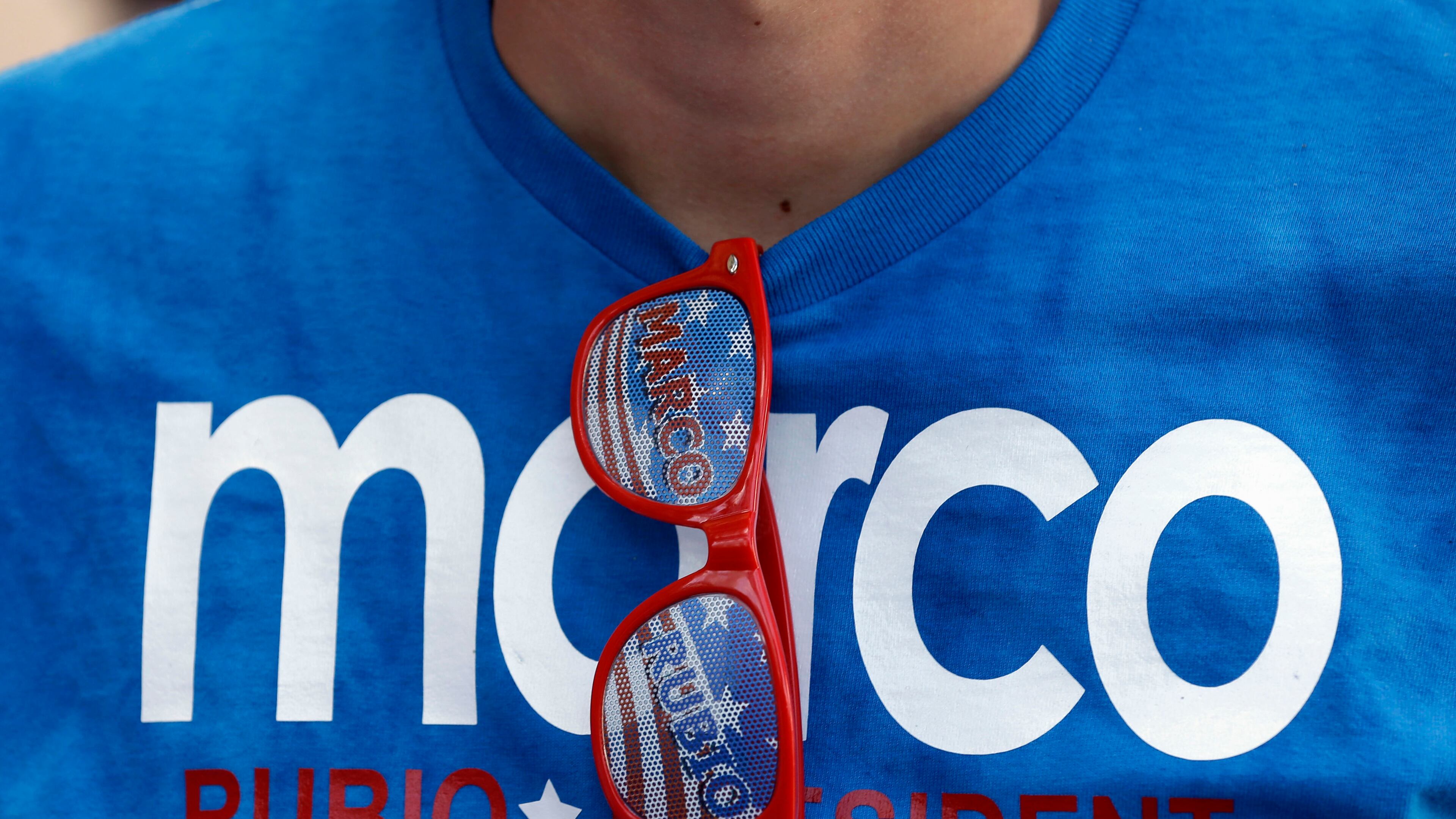Is this the first serious Republican to jump (officially) into the 2016 race?

Marco Rubio is expected tonight to become the third Republican to officially enter the 2016 presidential campaign. Like Ted Cruz and Rand Paul, Rubio is a first-term senator. Unlike them, I think he has a pretty good shot at winning the nomination.
Yeah, yeah, yeah: The Iowa caucuses are almost nine months away, and lots can happen between now and then. Paul has his dad's network at his back, and a group of super PACs supporting Cruz reportedly have already raised $31 million on his behalf. I know.
But both Cruz and Paul are candidates who represent factions of the party and in the coming months must try to broaden their appeal -- even as GOP voters already express skepticism about supporting them. Maybe they can do it. But it looks like a tall order.
Rubio, on the other hand, probably appeals to more of the GOP spectrum. He's more of a traditional Republican on foreign policy than Paul. He offers the same giftedness as a proponent of free enterprise and opportunity as Cruz, and like the Texan he rode into office as a tea-party favorite, but he's the more measured of the two and thus seems safer to the establishment wing of the party. He'll face questions about his stance(s) on immigration, but then so will all of the party's real contenders.
I'm not a big fan of relatively inexperienced senators who run for president; ideology aside, I think it's one big reason Barack Obama has had problems working with Congress during his presidency. Nor is it a particularly well-worn path to the White House. In the past 100 years, the only sitting Republican senator to win the presidency was Warren G. Harding in 1920: Barry Goldwater (1964), Bob Dole (1996) and John McCain (2008) all failed, and a host of others didn't even capture the nomination. (Only two Democrats, Obama in 2008 and John F. Kennedy in 1960, managed the feat in the same time frame.) I'd personally rather see Rubio win re-election to the Senate, then maybe run for governor of Florida in 2018, and then run for president in 2024 at the ripe old age of 53.
But timing is everything in politics, and I can see why it'd be tempting for Rubio to run now rather than let eight years -- and three other election bids -- pass in the meantime. There's speculation he's really running for the No. 2 slot on a ticket headed by anyone not named Jeb Bush (since they're both from Florida), and a Scott Walker-Marco Rubio ticket would certainly be an intriguing one from many angles.
Then again, Bush has an anchor for a last name, Walker isn't the most charismatic politician in the world, and once you get past those two there really isn't anyone in the GOP field who ought to scare Rubio, whose last name is, if anything, an asset and who has charisma to spare. The New York Times' Nate Cohn has Rubio as perhaps the only Republican who can realistically challenge Bush and Walker in a race that may be less chaotic than it appears today.
In November 2008, we saw a youthful, articulate, minority senator defeat a 70ish opponent who'd waited eight years for a second shot at the nomination. It'd be quite the historical twist if it happened again in 2016.


